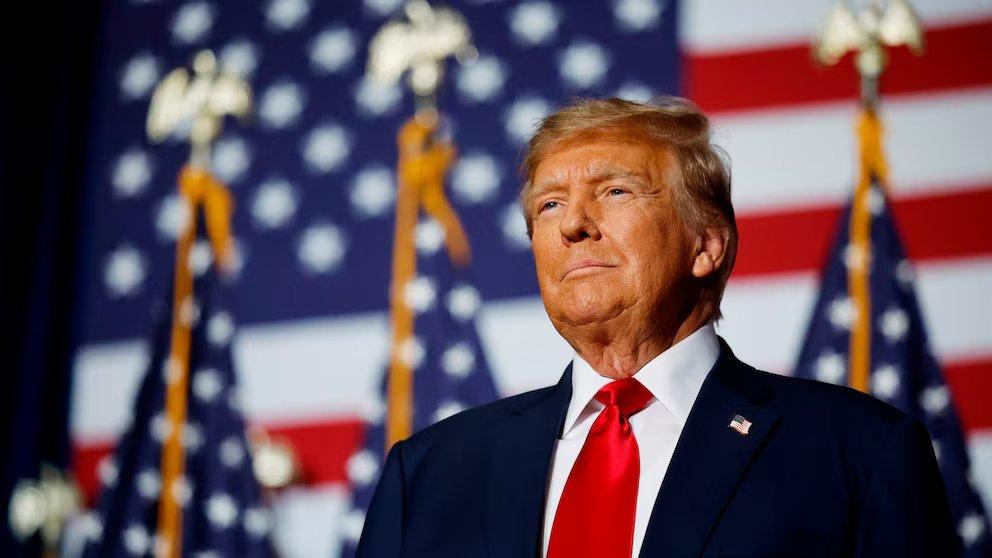
 US Vice-President JD Vance
US Vice-President JD Vance
US Vice-President JD Vance has suggested the power of US judges is beginning to reach its limit, as the White House responds to a flurry of lawsuits that aim to stall its agenda.
"Judges aren't allowed to control the executive's legitimate power," he wrote on X.
Vance's remarks on Sunday came less than 24 hours after a judge blocked members of Trump's newly created advisory body, the Department of Government Efficiency (Doge), from accessing sensitive treasury department systems.
The Trump administration, seeking to swiftly and dramatically reshape the federal government, is being challenged by legal hurdles - including more than two dozen lawsuits.
During his three weeks in office, Trump has signed dozens of executive orders, many of which are alleged by his Democratic opponents to have exceeded his constitutional authority.
While Democratic politicians have been quick to denounce Trump's moves, without control of Congress their legislative options to curtail the president are limited.
Some, like Massachusetts Senator Elizabeth Warren, have attempted to marshal popular opposition to the Doge-led attempts to shutter entire government agencies.
"In the building behind me, Elon Musk is seizing power from the American people," she said last week at a rally outside the Treasury Department in Washington, DC. "We are here to fight back."
Warren is set to lead another rally on Monday, but the public outcry to Trump's measures has generally been muted compared to the early days of his first presidential term.
It is only in federal courthouses that Trump's Democratic critics have had substantive success in derailing the Trump administration's efforts – at least for now.
Cases filed by Democrats have prevented several of Trump's executive orders from going into effect, with federal judges issuing temporary blocks.
Speaking to ABC on Sunday, Democratic Senator Chris Murphy suggested Trump's dramatic cost-cutting - including for its main overseas aid agency, USAID - amounted to "the most serious constitutional crisis the country has faced, certainly since Watergate".
On Saturday, a judge blocked Doge personnel - led by tech billionaire Elon Musk - from accessing sensitive treasury payment systems and people's personal data after 19 state attorneys general sued the administration.
Among the other Trump actions being challenged in court cases are:
- Ending birthright citizenship
- Migrant transfers to Guantanamo
- Establishment of Doge
- Offering federal workers a buyout incentive
- Housing of transgender inmates
- Ban on transgender individuals serving in the military
- Ban on DEIA initiatives in the executive branch
- Removal of independent agency leaders
As Trump made his way to New Orleans for the Super Bowl on Sunday, he told reporters the judge's ruling was a "disgrace", the New York Times reported.
Trump appointed Musk to lead Doge to slash what he describes as wasteful government spending.
Musk himself called the ruling "insane", asking: "How on Earth are we supposed to stop fraud and waste of taxpayer money without looking at how money is spent?"
In Vance's social media post, he cited other types of decision-making by the executive branch that he suggested were outside the scope of courts' legal purview.
"If a judge tried to tell a general how to conduct a military operation, that would be illegal," Vance wrote. "If a judge tried to command the attorney general in how to use her discretion as a prosecutor, that's also illegal."
Liz Cheney, a former Republican House representative who campaigned in the presidential election against Trump, snapped back at Vance.
"If you believe any of the multiple federal courts that have ruled against you so far are exceeding their statutory or constitutional authority, your recourse is to appeal," Cheney wrote on X.
"You don't get to rage-quit the Republic just because you are losing. That's tyranny."
The case against Doge's access to the treasury was filed in federal court in New York City.
It alleges the Trump administration violated federal law by allowing Musk's team access to the department's central payment system.
The payment system handles tax refunds and social security benefits, and contains a vast network of Americans' personal and financial data.
A hearing for the case has been set for Friday.
Any decision by lower-court judges that cuts against the White House is sure to be appealed by Trump's Justice Department lawyers, however.
While these cases will take time to wind through the federal judicial system, they may ultimately be reviewed by the US Supreme Court.
The US high court is currently controlled by conservatives, with three of the nine justices appointed by Trump.
Those conservatives may be open to giving the president and his allies broad new powers over federal spending.


